 One
One
Anyone seeing all six-feet-eight of him go by, looking like a basketball forward, would never guess his true profession and what he cares about. Unless he puts on, obviously, the huge white coat he wears which marks him as a saver of lives.
His name: Fernando Mederos. For a long time he’s been the top hematologist in my city, devoting his life to treating children with blood cancer. A doctor with a radio-announcer’s voice, careful manners, and a positive energy that gives him a shocking sense of clarity.
In spite of all that, Mederos’ reputation has a sensational and more painful edge to it: he is the longest-living HIV-infected Cuban on the Island who is surviving without medical treatment. He became infected in 1978 in Guinea Bissau while on an internationalist mission.
To summarize his life in a few paragraphs is beyond my abilities. However, to say that this man was among the first diagnosed in Cuba, and that he suffered discrimination from ignorance, was held in HIV wards where, according to his own words, people were brought more to die than to be healed; to say that he was unable to practice the profession for which he had studied, and which he loves madly, for a very long time, perhaps sheds light on his background and history.
No one who passes through the narrow streets of my city imagines the enormity of the affronts, the infinite sadness, that this admirable man has suffered. Much less, those who depend on him for the life of their child, or who experience the sweetness he imparts every day while robbing death of another victim.
Two.
Among the tear-filled and desperate stories experienced when Hurricane Dennis hit my area, I heard one directly that I keep in my cache of reasons for, like Marti, having faith in the betterment of mankind and the uses of virtue.
The only brick house in a very poor neighborhood known as Revacadero, in the town of Media Luna, was home to five families who, in a single night, lost their roof and all their belongings.
One family, however, after the tremendous winds had died down, stood in the open without daring to approach a neighbor’s house which was serving as a temporary refuge. The reasons were religion and social distance.
The helpless family was made up of five Jehovah’s Witnesses, who had never made friends with the owners of the privileged house, who were devoted Catholics. I learned later that the antagonism between them had been passed down through generations with a hateful stubbornness.
But no natural phenomenon destroys the humanity and feeling of good men.
The pater familias of the Catholics, a carpenter with the thunderous name Ormán Villalón, refused to be separated from the five Protestants and their wreck of a house until he had convinced them, by sheer force of a will stronger than theirs, that he had blankets for them in his home. I remember the wariness in the eyes of those who entered, for the first time, what until then had been the inner sanctum of their enemies.
Just recently I heard from these two families whose gods have faced off in other times: for the last five years they have been like brothers. Living together in the same tiny town, divided by faith, but with a mutual thankfulness that their wounds have been forever healed.
Three.
He passed with unusual speed, from social hero to villain. As things happen in the land of fanatics.
He went from being the most admired and honored teacher at the primary school in my town, with a unique curriculum and the vocation of an evangelical, to being the incarnation of evil to the alleged defenders of truth.
His name: Enrique Martínez Fajardo, a 33 degree Mason, a man idolized by endless generations of Bayamo’s citizens educated under his aegis, who have never understood how “Mr. Martínez” could have been vaporized with such bitterness.
What was his sin? According to the anonymous accusation, a group disaffected with the system met in his lodge and disagreed with national policy. He was accused of founding ghost political parties, and instructing local dissidents. Even today, when he tells of it, Martínez Fajardo displays a bittersweet smile.
The most notorious acts of repudiation in this city were directed against him. The most massive, the most fierce. The end of the paroxysm was huge: leading the mob were his former students, children of eleven, who did not understand why, but they knew they now had to shout at and offend their beloved Mr. Martinez.
I remember this very well. Although by divine fortune I was not among those chosen for those terrible events, when I was still tiny I studied in the same school. The school, incidentally, that changed its anthem because the former one, which had always been sung with pride, had been written by Mr. Martinez.
Now he cannot go anywhere unnoticed. With his decades behind him, he stops at every corner to talk with a friend, a friend of his friends: Martínez Fajardo was the master of an entire city, and not even stigma nor acts of repudiation can erase that fact.
Nor has he abandoned the amusing laugh with which he tells his stories to the children, nor the wonderful smile that mocks the slander of which he was a victim. I, who never let him pass by me without stopping, have failed to notice any speck of hatred among his battered memories.
Final
Alejo Carpentier wrote the most memorable paragraph in a Cuban novel. One paragraph that I have never read without feeling a shudder deep in my skin:
“And understand, now, that man never knows who will suffer and wait. Suffer and wait and work for people he will never know, and who in turn will suffer and wait and work for others who still will not be happy, because a man always craves happiness beyond the portion he has been granted. But the greatness of man is precisely his desire to improve. To impose on himself labor. In the kingdom of heaven there is no greatness to conquer, because there everything is an established hierarchy, with an unknown clarity, there is no end, no need to sacrifice, only rest and delight. Therefore, overwhelmed with grief and labor, beautiful within his misery, able to love in the midst of the plagues, man can only find his greatness, his maximum reach in the Kingdom of this World. ”
Carpentier was devastating.
The more I think, and the more I remember these worthy stories, the testimonies men close to me have presented to me in these days without faith, the more I wonder, with Fito, who said that all is lost while so many are willing to offer their hearts?
November 1, 2010

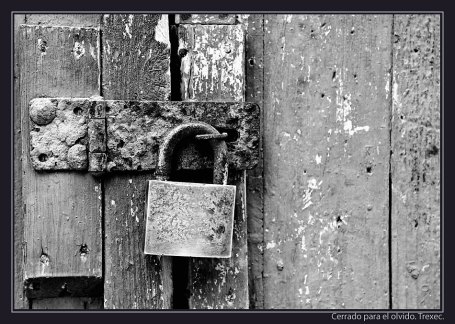 One of the merits which I believe can be attributed to the government of Raul Castro, since he took office on the island in 2008, is his obvious concern for the national economic condition.
One of the merits which I believe can be attributed to the government of Raul Castro, since he took office on the island in 2008, is his obvious concern for the national economic condition.
 If someone were to ask me, what is the principal weakness, the most glaring problem suffered by Cuban journalism today, I believe I could summarize it without hesitation: It doesn’t resemble Cubans.
If someone were to ask me, what is the principal weakness, the most glaring problem suffered by Cuban journalism today, I believe I could summarize it without hesitation: It doesn’t resemble Cubans. Just recently I discovered with regret that I had only one task pending in my passage through the institution of Cuban journalism. A yearning that had been building since my feverish college days maybe five or six years ago.
Just recently I discovered with regret that I had only one task pending in my passage through the institution of Cuban journalism. A yearning that had been building since my feverish college days maybe five or six years ago.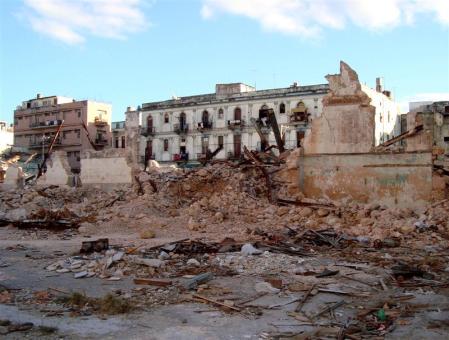 Every time I’ve heard the stories of prolonged trips and family separations from some foreign friends, I have come, inevitably, to the same question: why does it affect us Cubans so cruelly to be separated from our friends and loved ones?
Every time I’ve heard the stories of prolonged trips and family separations from some foreign friends, I have come, inevitably, to the same question: why does it affect us Cubans so cruelly to be separated from our friends and loved ones?
 Nobody knows her name or the sound of her voice. Except for her family or close friends, her individuality doesn’t matter.
Nobody knows her name or the sound of her voice. Except for her family or close friends, her individuality doesn’t matter.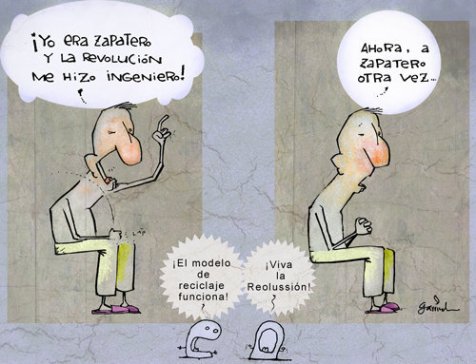 Big Guy: I was a shoemaker and the Revolution made me an engineer.
Big Guy: I was a shoemaker and the Revolution made me an engineer.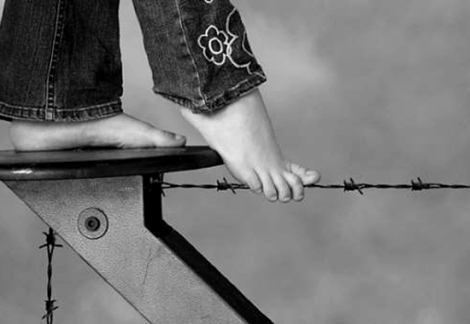
 In my judgment, few issues of the Cuban reality are more complex to objectively analyze than the controversial economic, financial and trade blockade-embargo which, since 1962, the United States has maintained against the Island’s government.
In my judgment, few issues of the Cuban reality are more complex to objectively analyze than the controversial economic, financial and trade blockade-embargo which, since 1962, the United States has maintained against the Island’s government.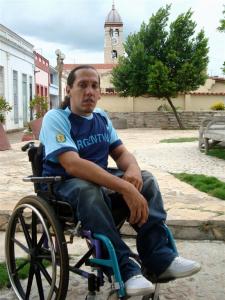

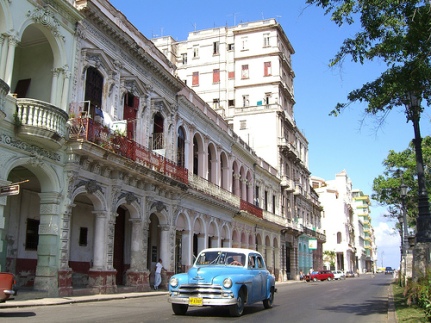 My generation grew up listening to the litany. It wasn’t the only one. It was barely a new one. But I can attest to that: along with a motto I never understood “Pioneers for Communism, we shall be like Ché!”, my legs and my conscious grew up hearing that the country my grandparents had, without a Revolution, was far worse.
My generation grew up listening to the litany. It wasn’t the only one. It was barely a new one. But I can attest to that: along with a motto I never understood “Pioneers for Communism, we shall be like Ché!”, my legs and my conscious grew up hearing that the country my grandparents had, without a Revolution, was far worse.